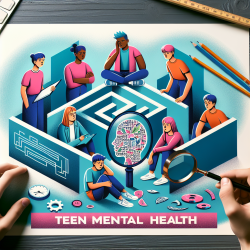In the realm of pediatric therapy, ensuring that interventions are both effective and enjoyable is paramount. The study "Evaluating a Therapeutic Powered Mobility Camp for Children with Severe Cerebral Palsy" published in the Canadian Journal of Occupational Therapy offers compelling evidence on the efficacy of a specialized summer camp, Power Fun, designed to enhance mobility skills in children with severe cerebral palsy (CP).
Children with severe CP often face significant challenges in achieving independent mobility, which in turn affects their overall development. Power Fun, a therapeutic powered mobility summer camp, was developed to address these challenges by providing an intensive, enjoyable, and supportive environment for skill acquisition. This blog delves into the key findings of the study and how practitioners can leverage these insights to improve outcomes for their young clients.
Key Findings from the Study
The study utilized a quasi-experimental, repeated-measure design involving 24 participants aged 7-20 years with severe CP. Assessments were conducted at four points: three weeks before the camp (T1), at baseline (T2), post-intervention (T3), and at a three-week follow-up (T4). The results indicated significant improvements in powered mobility skills and functional mobility goals:
- Powered Mobility Skills: Participants showed significant improvements in powered mobility skills, with a large effect size (F(1,22)=56.61, p<0.001, η²p=0.74).
- Functional Mobility Goals: 70% of the functional mobility goals set by participants were achieved post-intervention, demonstrating the practical benefits of the camp (F(1,58)=80.17, p<0.001, η²p=0.74).
Implementing the Findings in Practice
For practitioners working with children with severe CP, the findings from this study offer several actionable insights:
- Intensive, Fun-Filled Interventions: The success of Power Fun underscores the importance of creating an engaging and intensive learning environment. Incorporating play and developmentally appropriate games can significantly enhance skill acquisition.
- Personalized Goals: Setting individualized, functional goals that are meaningful to the child can boost motivation and lead to better outcomes. Practitioners should involve children in the goal-setting process to ensure relevance and engagement.
- Continued Practice and Support: The study highlights the importance of ongoing practice and support. While significant gains were made during the camp, maintaining these skills requires continued effort and reinforcement.
Encouraging Further Research
While the results of this study are promising, further research is needed to explore the long-term impacts of such interventions and to refine the methods used. Practitioners are encouraged to contribute to this growing body of knowledge by conducting their own studies and sharing their findings.
To read the original research paper, please follow this link: Evaluating a Therapeutic Powered Mobility Camp for Children with Severe Cerebral Palsy.










